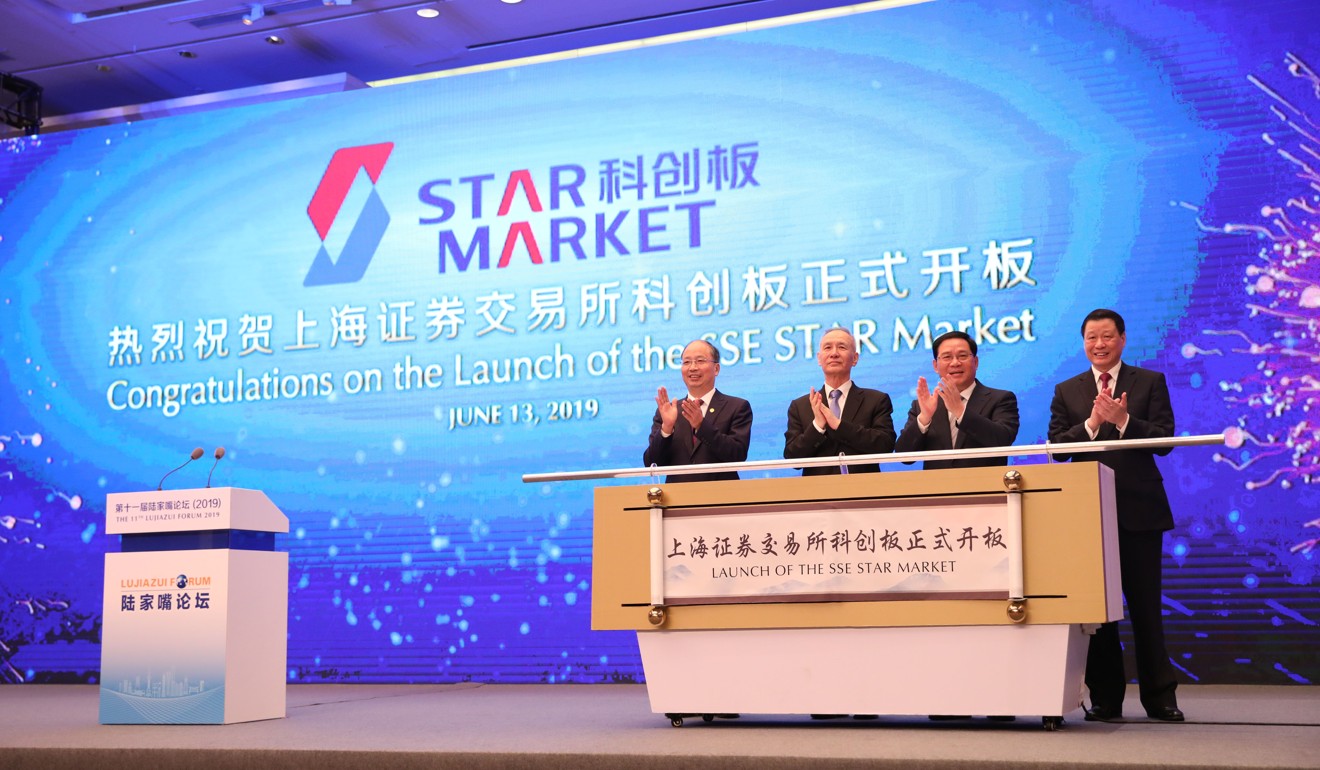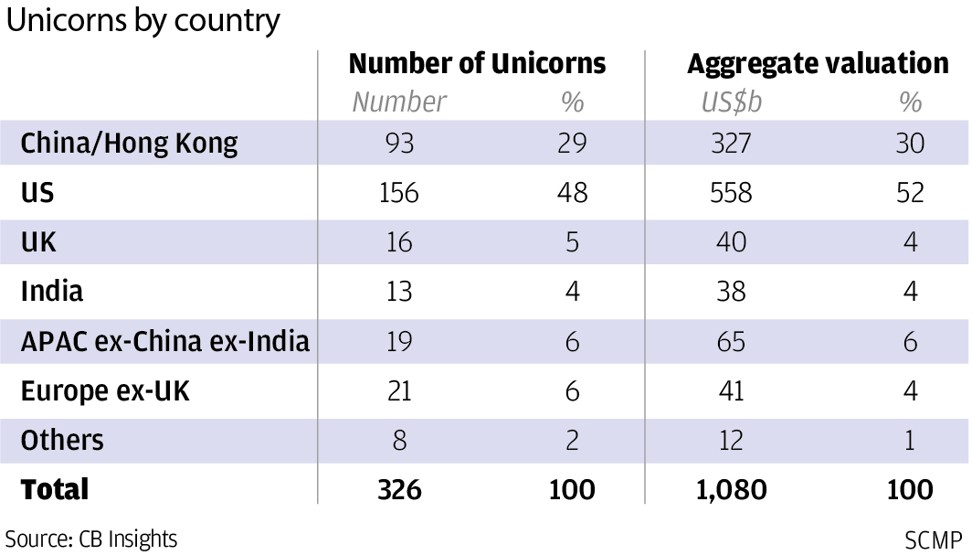
China’s new Star Market turns dozens of founders into overnight billionaires, while some small investors nurse heavy losses
- Chen Wenyuan, the 50-year-old chairman of Suzhou HYC Technology, is the biggest winner, with his holding in the company now worth US$3 billion
- Frenzied buying has created at least 30 yuan-denominated billionaires among those who already owned pre-IPO stakes in newly listed companies

Some small investors may be nursing losses after taking a punt on China’s new board for technology companies, but many of the senior executives of the listed start-ups are celebrating a windfall.
The frenzied buying that has fired up the stock prices by an average of 200 per cent since trading began on the Star Market two weeks ago has created at least 30 yuan-denominated billionaires among those who already owned pre-IPO stakes in the companies. Someone with a fortune of 1 billion yuan is worth US$144 million.
The first batch of 25 companies on the mainland’s Nasdaq-style market posted a stellar average gain of 140 per cent in the first trading week when shares were allowed to change hands freely without daily limits. The stocks continued to advance another 32 per cent on average in the second week, when they were subject to a 20 per cent daily trading cap.
“The market has enabled many people to become super rich overnight given investors’ keen interest in owning shares of their companies,” said Zhou Ling, a hedge fund manager with Shanghai Shiva Investment. “But they certainly will face pressure to develop their firms into China’s own technology giants to live up to investors’ expectations.”

The Shanghai Stock Exchange has yet to compile an index to track the Star Market, also known as the Technology Innovation Board.
The Star Market, ordered into existence last November by Chinese President Xi Jinping, was designed to nurture the growth of China’s promising tech start-ups in the hope of creating the next Microsoft or Apple, as the mainland leadership pins its hopes on technological innovation to sustain economic growth.
Based on the closing prices on the first trading day, 124 individuals who owned shares of the Star Market-listed firms before their initial public offerings saw their fortunes shoot up to above 100 million yuan (US$14.4 million).
Chen Wenyuan, the 50-year-old chairman of Suzhou HYC Technology, is the wealthiest of the new crop of super-wealthy founders, with his holding in the company now worth 20.8 billion yuan (US$3 billion).
Chen and his wife started the firm, which makes testing equipment for liquid crystal products, with just a million yuan in 2005.
Shares of HYC rose 2.1 per cent to 69.92 yuan on Friday, taking the gain to 26 per cent since the closing price of 55.5 yuan on the first day.
With the fortune from his personal stake, he would secure the 154th spot on the mainland Chinese rich list compiled for last year’s Hurun Report.
The second-biggest winner was Cao Ji, chairman of Zhejiang Hangke Technology which makes lithium battery equipment, with his shareholding now worth 13.4 billion yuan. In third place was Deng Hui, who controls ArcSoft, a developer of software linked to visual artificial intelligence, with his 10.3 billion yuan fortune.
The newly minted executives appear keen to avoid the media glare, having turned down interview requests.
Not everyone has been cracking open the champagne. At the other end of the spectrum were numerous small investors who chased the rally, buying shares early on day one of trading, having missed out on IPO shares.
They got stuck with paper losses in the first week of trading as the shares retreated from their initial high.
Analysts said anyone who followed up buying shares recently faces the risk of losing money since profit-taking is expected to set in next week.
The first 25 companies to debut on the Star Market were seen by investors as the best unlisted Chinese technology start-ups, each having the potential to turn into the country’s profit stars of the future.
They currently trade at about 160 times their 2018 earnings.
But the hard work for the founders and executives may be only just beginning.
“It is not about their valuation at present, though the PE ratio of 160 appears to be lofty,” said Yin Ran, a Shanghai-based angel investor. “They need to build their companies to be real technology stars to prove that they deserve the wealth.”
